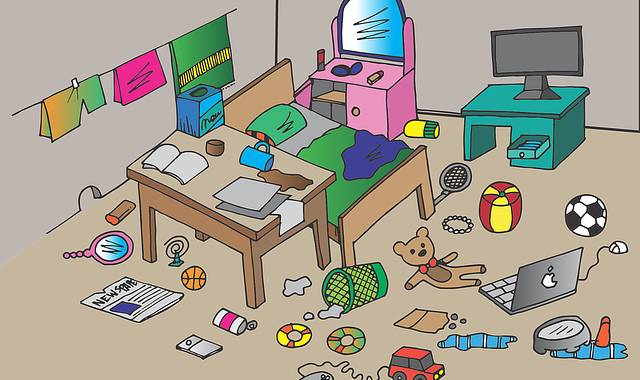
What you tell yourself -How to ensure your self-talk serves you well.
(part 1 of a 2-part article)
We have around 70,000 thoughts a day. Some are positive and serve us well, whilst many are negative and hold us back. What kind of things do you say to yourself?
Self-talk is the private internal chatter in your head that incessantly occurs. We comment, assess, criticise, judge, blame, spurn or praise ourselves thousands of times over each day.
Examples of common negative phrases are:
“I am so stupid, clumsy, crazy or useless”, or… “I can’t do it, no one listens to me, I am rubbish at that, no one likes me, it’s just hopeless”, I’ll never get that job”, and… “I’m too fat, too thin, too old, not clever enough, not tall enough, not good enough, not confident enough”, and so on.
Negative self-talk is not just a bad habit, it can be quite damaging. Our brain does not always accurately recognise or objectively assess our personal circumstances. In fact, as a protective mechanism, we are wired to see the dark side of things so that we can prepare and deal with bad situations. The problem with this is that we start to believe things are worse than they might really be.
This is exacerbated further when we are tired, hungry, stressed, or off-guard. Our internal chatter can turn into negative self-affirming and undermining phrases which can dent our self-esteem and feeling of self-worth as well as impede our performance and achievements.
Like all habits, we can modify our negative thoughts and self-talk with a little insight and practice. First, we must learn to notice when it happens. Then we can learn to overwrite the negative script with something more positive – and probably a more accurate reflection of the situation. This is not a quick fix, but with a little time and practice it does work.
I first learnt to modify my own self-talk some years ago and it has definitely helped me with a variety of life challenges. To illustrate the point, I have cited one of my personal scenarios, I remember it well. It shows how negative self-talk can undermine your expectations and you’re your performance. Regular readers will know I like to play tennis…
I recall nearing the end of a set of tennis. I was winning the set 5 games to 2. If you are not a tennis fan, this is almost a slam-dunk and only one game away from winning the set. However, things started to slip away from me. Somehow, I had let it get to 6 games-all (which requires a tie break). I was already angry with myself for not capitalising on my early advantage. In the tiebreak, it was 6 points to my opponent, and 5 to me. This meant that if I lost the next point, I would lose the whole set! Fortunately, I was serving (and I am relatively good at serving for my level of play), so winning the point was achievable and within my control.
I hit the first serve as hard as I could. Unfortunately, it just clipped the top of the net and flew out. As I bounced the ball and planned my second serve, I thought to myself, “I bet I blow this and serve a double fault”. Sure enough, I served the ball into the net. I was furious with myself, not just because I had lost the set but, worse still, I had told myself that I would double fault – and guess what? I did! I had created and fulfilled my own prophecy!
I fully acknowledge that a game of tennis is neither essential nor life affirming! However, uttering such negative self-talk in a different and more important aspect of life could just as easily be self-fulfilling and damaging.
“The only thing that can come in your way is YOU! If you think you can, you will do it. If you think you can’t, you are right too!”
(Sanchita Pandey)
My tennis game was a few years ago. Since then, I have learned the importance of self-talk. What we say to ourselves matters. Psychology suggests that this is because we start to believe what we tell ourselves – whether it is true or not! I reflected on how I had spoken to myself during the game. I had told myself I was going to double fault, and I had obviously believed it. And so, I had made it happen!
How do you talk to yourself? Are there times when you tell yourself that you are useless or not able to do something? It may not be as trivial as a game of tennis, but whatever you do in life it is likely that you are your own worst critic.
I have worked on changing the way I talk to myself. You can too. It has made a huge difference to my tennis and, significantly, to other more important aspects of my life. It can make a huge difference to whatever it is that you do or want from life. Here are four steps to guide you to thinking and talking more positively to yourself:
1. Recognise you do it.
The first step is to notice that you have your own inner dialogue. We all talk to ourselves, and it is important to notice when you are doing it and whether it is positive or negative.
2. Write it down.
The second step is to notice exactly what it is that you say to yourself. It is very helpful to write it down so that you record verbatim the narrative that you are saying to yourself. Some people find it useful to give their inner voice a name (such as “my gremlin” or “my negative self”). When you write it down you would, for example, write, “my gremlin says…”.
3. Create a new narrative.
You are your fiercest critic. But what would your best friend be saying to you in the same situation? For me, my tennis coach would say to me, “throw the ball higher, because you do your best second serve when you toss the ball high”. They certainly would not say, “you always double fault at set point”! Become your own coach and loyal supporter. Create a positive narrative that will help and support you.
4. Overwrite the old narrative with the new one.
Whenever you notice your inner critic (your negative self) using the old narrative replace it with the new one. If you have been telling yourself, “I will never get promoted”, change it to your new narrative such as, “I am ready for my next promotion”.
I hope that these 4 stages are helpful in guiding you through the first steps to changing your negative self-talk. However, this topic is so important (and vast!) that I have split this blog into two parts. Part-two will be published in July and will offer 10 practical tips to deal with your negative self-talk. If you register on Karencastille.com website, the link for the next blog will be sent to you automatically via my monthly newsletter.
Start practicing the above and get ready for the 10 top tips being published in July.


